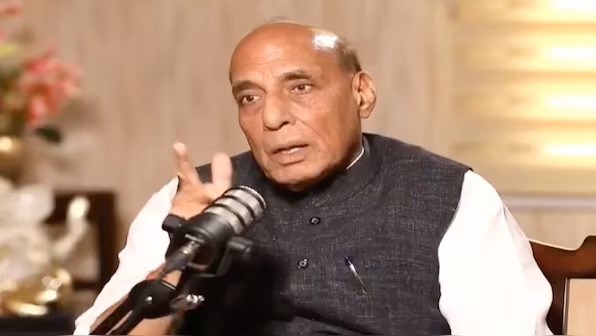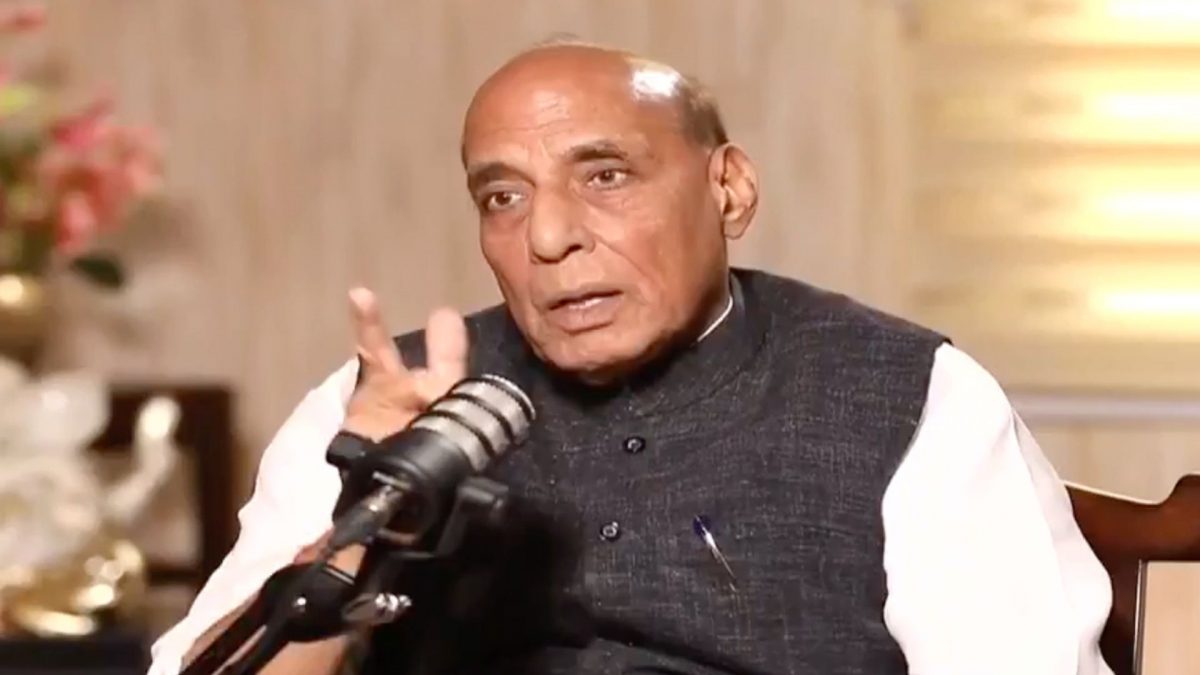India’s hand in extraterritorial killings of terrorists: Hackneyed Pakistani strategy and new low of British media
- May 17, 2024
- Posted by: admin
- Category: Pakistan

Defence Minister Rajnath Singh’s statement, ‘Ghar mein ghus kar marenge’, does not mean that India has admitted its role in the alleged targeted killings of anti-social and anti-India elements in Pakistan)
)
So, The Guardian is at it again. In September 2023, it had reported extensively on the allegations of extraterritorial killings of India-focused terrorists by Indian intelligence agencies, while the former resided in foreign lands. On the Indian response, it stated, “It was a mood of abstinence that has since echoed across Indian media and politics,” referring to the consensus across society and the political community on the ludicrous assertions that India had chosen to hunt down various terrorists in foreign lands.Advertisement
The latest rake-up comes, not surprisingly, from Pakistan, and The Guardian, in its investigative enthusiasm, alleges the revelations to be the handiwork of both Pakistani and Indian intelligence officials. It even puts the figure of 20 anti-India operatives having been hunted down abroad by India as part of a wider policy to target terrorists living on foreign soil, ever since the Pulwama attack of February 14, 2019, which killed 40 Indian policemen in an IED attack on a convoy.
The report becomes even more ham handed in the follow-up when The Guardian states that while India has rejected these allegations, Defence Minister Rajnath Singh has virtually accepted an Indian hand in them through his statements.You May LikeEnjoy a Welcome gift worth up to Rs.35,000American Express by TaboolaSponsored Links
What people need to be aware of is The Guardian’s propensity to spin information, statements, claims, and contexts all into a web of grey, the colour that is most popular in the world of influence and information warfare. Just when we thought that things were settling down in the murky world of international allegations to paint selected governments red, enters the mother of all terror sponsors in the world.
The nation that triggered the entire concept of jihadism in the late 1970s to the 1980s to target India through one of the longest-lasting sponsored proxy wars that has only now abated due to fear of Indian reprisals is Pakistan. It is awakening from a situation that led to its virtual hara-kiri.Advertisement
Unable to regain the initiative and yet wishing to rebuild its own relevance in Jammu and Kashmir, Pakistan is now searching for means to place India on the proverbial mat of allegations before the international community.
These allegations extend to all those very things for which its own government has been guilty all these years: Targeting Indian nationals on Indian soil, sponsoring and running extensive networks in J&K and extending across India, and using criminals as flag bearers with drugs as their legal tender.
Pakistan’s copybook was hardly ever seriously examined, especially its role in the entire gamut of jihadi activity across Af-Pak, the Middle East, Europe, and America. It has always been a strategic asset for the West, and the Western media has always turned a blind eye to its activities.Advertisement
Down and almost out for the last few years, due to an impoverished and collapsed economy as well as internal political strife, Pakistan has just sworn in a new coalition government. Its attempt to initiate and get to business as usual has led it to find the domain of Western allegations against Indian intelligence agencies as a good starting point to make a re-entry. India need not react to these except to quote some good old idioms: “Kettle calling the pot black” or “Those who live in glass houses……” etc.
If the Western media gives credibility to Pakistan’s allegations, it had better listen to India’s well-substantiated claims of Pakistan’s sponsorship of proxy wars against India.Advertisement
The allegation of The Guardian and the surmise it draws from Rajnath Singh’s statements only substantiate the ridiculously low standards of research by British media in particular.
The Indian defence minister is no rookie, and in ten years of holding the appointments of home minister and defence minister for a term each, The Guardian would surely be aware of some of the favourite cliched responses of Rajnath Singh.
The statement that The Guardian makes into a contentious one is hardly different from what the defence minister has often stated in speeches. “If any terrorist from a neighbouring country tries to disturb India or carries out terrorist activities here, he will be given a fitting reply. If he escapes to Pakistan, we will go to Pakistan and kill him there,” Rajnath Singh said in an interview to News18 on April 5, 2024.Advertisement
Any and every one interprets and understands this well enough to understand that it refers to the capability demonstrated by Indian security forces (SF) first in September 2016 and then in February 2019. The former, commonly called the surgical strikes, was a limited depth strike across the LoC to target terrorists and their infrastructure without any targeting of regular Pakistani forces. The second was a deep strike by the Indian Air Force against a huge terrorist camp in Khyber Pakhtunkhwa, commonly referred to as the Balakot air strike.
Both were retaliatory actions in response to terrorist strikes in J&K, messaging clearly the Indian intent that it was willing to risk entry into Pakistani ground or air space to achieve its aim of hunting down and striking identified targets, as per the chosen strategy at a time and place of its choosing.
“Ghar mein ghus kar marenge” (We will kill the terrorists by entering Pakistan) does not mean that India has admitted its role in the alleged targeted killings of anti-social and anti-India elements in Pakistan. It’s only a cliched response to questions to prove that an asymmetry exists today between India and Pakistan’s military capability.
Pakistan cannot afford to risk conflict with India, but it has adopted the less risky option of castigating India among the international community, primarily to enhance its own significance.
The Indian defence minister has re-emphasised that Pakistan’s sponsored terrorists are unsafe even in their homeland, as India has the capability to risk upping the ante to target them, as demonstrated earlier.
Pakistan needs to also be reminded of its growing vulnerability to internal attacks by its home-grown terrorists, which are being sponsored not by India but by many agencies and organisations within and outside. Internecine killings are often the result of these uncertain alliances and enmities.
On the final count, in hybrid warfare of this kind, information, statements, media commentaries, and analyses all add up to create a grey cloud of doubt and uncertainty. Grey should be responded to only by grey, never by black and white. That is almost a rule of Grey Zone Warfare.
The writer is a Member of the National Disaster Management Authority. Views expressed in the above piece are personal and solely those of the author. They do not necessarily reflect Firstpost’s views.TagsPAKISTANRAJNATH SINGH
